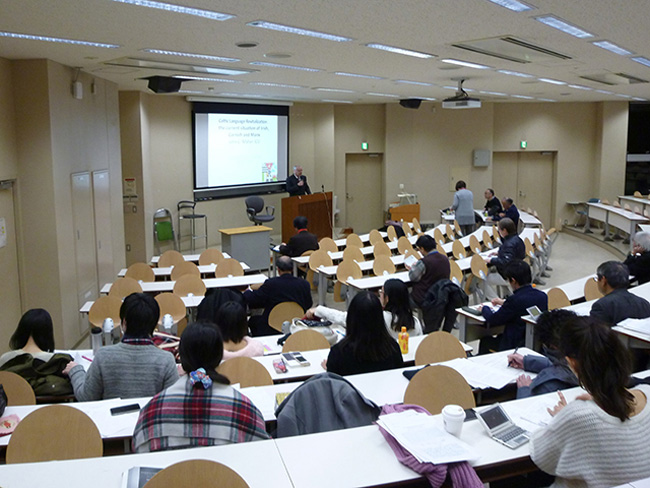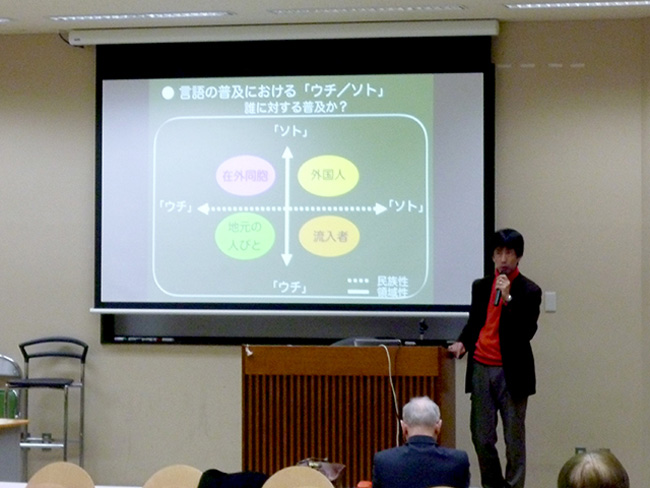
1.The Basque region and language
The Basque Country lies across Spain and France. 60% of residents live in the Basque Autonomous Community and identify more strongly as Basque than Spanish. This is evident from the way they describe themselves as euskaldunak (Basque speakers).The two languages spoken in the Basque country are Basque and Castilian. Basque is a language isolate whose origin is unknown and has a striking dialectal culture common in minority languages. Historically, the area's linguistic identity was repressed by Spanish and French authorities. Basque came under further suppression in the 20th century from the Franco government, although there are no clear historical records. Under these conditions, the number of Basque speakers fell, but in the early 1960s a movement for Basque education emerged. This aimed for the fostering and literacy education of Basque speakers using the Basque language. It also led to the establishment of ikastola (primary and secondary schools) and adult language schools teaching Basque. In 1968 the Basque Language Academy was established, creating the standard Basque regarded as the standard language in the Basque country and used widely in education, government and media.
2.Promulgation of Basque Abroad
The Extepare Basque Institute founded in 2007 preserves and spreads Basque identity, its modern culture and music, in the aim of promulgating Basque abroad. HABE is another organization involved in the promulgation of Basque. Founded in 1981, it conducts Basque language education for adults in the Basque autonomous area.
Professor Hagio explained the four reasons for spreading Basque abroad. First is the preservation and transmission of language and culture by training specialists and increasing the number and quality of speakers. Second is the raising of Basque's social position by strengthening bonds with the diaspora, promoting immigrants' social integration and improving the language's outward image. This leads to the third, political and diplomatic reason. Increasing the language's social value can build it a favorable position in national and international affairs. Fourth, the economic gain from language and culture leads to the spread of the language and its resources, playing an important role for the continuation of a state.
The success of the Basque revival movement surely gave hope to speakers of other minority languages. Basque's recovery of its social standing and its international expansion activities deserve praise. However, for younger generations, knowing Basque does not necessarily preserve their ethnic identity as being Basque.
・The Revival of Celtic Languages in Europe - Professor C. Maher
In the 19th century, Cornish (a Celtic language) was considered a dead language, but the 1992 European Charter for Regional/Minority Languages raised the status of it and other Celtic languages. This was due to revival activities in the various Celtic areas. Minority languages are valued in education, government and elsewhere. In Scotland, Scottish Gaelic is used widely on signs and in lessons, Irish is recognized as an official EU language, and some schools on the Isle of Man teach Manx.
Immigration is one of the contributing factors. Immigrants may learn a region's traditional language to assimilate into the community. This is probably because language is the shortest and most accessible way to adapt to the area. Immigrants learning of a traditional regional language has a considerable positive effect on such minority languages, increasing speakers which can lead to language revival. Immigrants, physically inside but ethnically outside a community, can unwittingly aid language revival efforts by learning a language to fit in.
However, immigrants do not join the Celtic ethnic group by speaking a Celtic language. The Irish government (2015) grants citizenship based on language and culture, not ethnicity. Here appears Professor Maher's new concept of metroethnicity.
Metroethnicity is a novel approach to identity: a hybrid identity whereby people with various ethnic backgrounds receive and integrate into themselves different cultures.Thus, learning a Celtic language in a Celtic society does not to demonstrate ethnicity, but shows one's "cool" or "polished" impression of it and one's "Celt-ness" by learning it.
The same is true for immigrants. Learning the language of one's new community is a "cool" bilingualism and also one way of measuring assimilation into a community. Professor Maher believes the idea of seeking identity from one's ethnicity or ethnic identity is changing.
This concept of metroethnicity can be applied to those speaking and learning Basque. Of course, some have developed their own Basque identity as a result of Basque's revival, but does this apply to everyone learning and speaking Basque in the region? In a modern information society, where chances for language contact are increasing and many people are constantly exposed to languages, what proportion of those learning minority languages do so out of an aesthetic desire for a "cool" or "refined" language? (Ayano KUDO, Ryuko TANIGUCHI )
 Professor C. Maher (ICU)
Professor C. Maher (ICU)

Professor Sho HAGIO (TUFS)
Poster ( PDF )